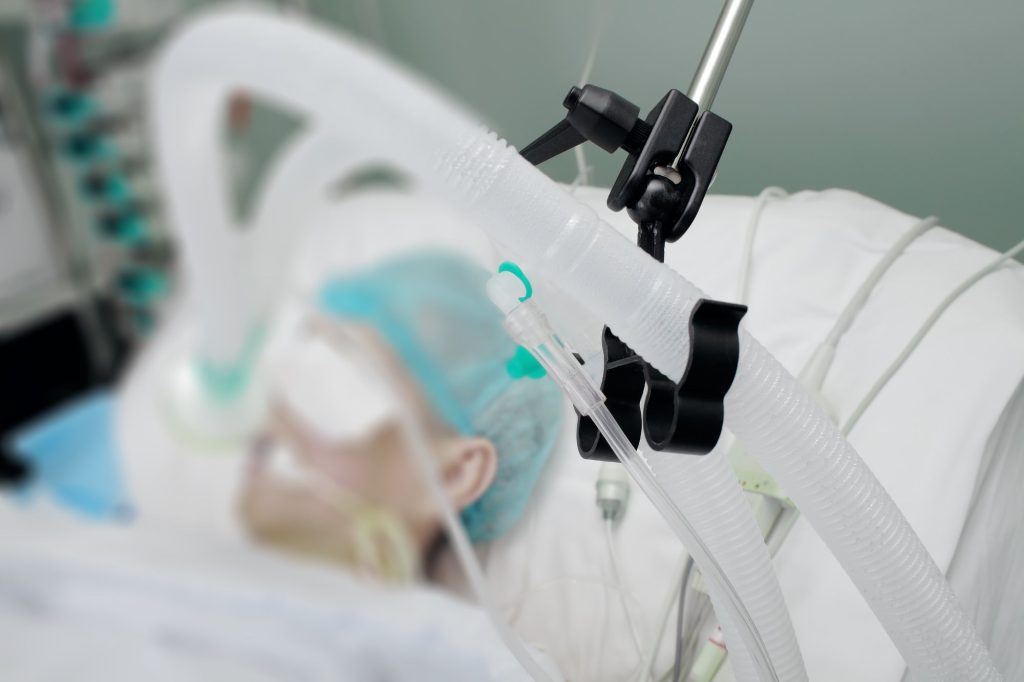It’s difficult to agree on one definition of consciousness, so it’s confusing to read reports that someone who was in a coma for 15 years suddenly regained it. What does it mean to be aware of yourself and the world around you? If you pass out and then “regain consciousness,” it’s clear that you woke up with many of the same abilities you had when you shut your eyes. But that’s not what happened to this patient. What did he regain?
A case report out today in Current Biology tells of one man who had a car accident 15 years ago, putting him into a vegetative state. Operating under the hypothesis that stimulating the vagus nerve—one of the main cranial nerves—might help the brain to regain function, neurologists started treating the man with small electrical impulses. Vagus nerve stimulation can help epilepsy patients and people with depression, but it’s being investigated as a treatment for a huge range of other disorders. The nerve is connected to so many organs that it can influence many bodily functions, potentially without the side effects that come along with many medications. It seemed worth a shot, so doctors implanted a small device in the patient’s upper left chest that could stimulate his vagus nerve.
They saw improvements after just a month, and continued improvement over the following months as he continued treatment. The subject’s brain showed increased activity in areas that had previously been quiet. He was eventually able to follow a moving object with his eyes, and turn his head to look at someone speaking. He even shed tears and could smile with the left side of his face when he listened to his favorite music. There’s no update on whether he’s made progress since the Current Biology paper was written, so it’s not clear whether he improved further.
We can all probably agree that in this case—when someone is reacting to people and music and questions—consciousness has been regained. But the problem isn’t how we define consciousness on a case-by-case basis; it’s how we define the concept in general.
A vegetative state is generally considered to be a lack of awareness of yourself and your environment, whereas a “minimally conscious” person can grasp at objects, make eye contact, or respond to commands. Brain imaging tools can help to establish whether there’s any activity going on in the absence of movement. There’s also a Coma Recovery Scale that tracks the many ways a patient can regain function, from eye movements to auditory function to physical motion. A person’s score on that scale can help determine whether they’re minimally conscious or in a fully vegetative state. Even for this case, the CRS was just one of the tools that researchers used. They also implemented various brain imaging techniques to determine which parts of the patient’s mind were active.
Unlike infections or genetic disorders, there’s no singular test to determine consciousness. There are guidelines and scores and judgment calls. And unfortunately, this can sometimes lead to mistakes.
A 2010 study in the New England Journal of Medicine found that about 40 percent of patients with “disorders of consciousness” were misdiagnosed. These people were actually able to communicate, even if it was just to yes or no questions, but had been assumed to be completely vegetative. A similar study in The Lancet found roughly the same rate of misdiagnosis. And the authors suggest that even more patients than that could be internally aware, but unable to communicate with the outside world even using things like eye movement. On the other hand, a follow up study argued that these findings were a misinterpretation of random noise in brain scans, and didn’t actually indicate consciousness at all. Because this wasn’t already complicated enough.
None of this is to suggest that doctors are being negligent or are willfully ignoring signs of life in coma patients—it’s just incredibly hard to determine this stuff. It’s also incredibly important. Vegetative patients can be taken off life support with their family’s consent. But if it’s this difficult to tell whether a person is conscious or not, how hard should doctors have to look before they can classify a patient as unresponsive? Families who choose to take their relatives off life support can already face enormous guilt over their decision—is the idea that their loved one could be in there somewhere, despite all of our best evidence to the contrary, only going to make it worse?
And what if a conscious patient wants to take themselves off life support? What if a life with no movement or real, meaningful communication isn’t a life they want? Some states and countries offer terminally ill people the right to end their own lives—should we extend the same offer to conscious coma patients? And if so, how can we make sure that option is being made available if we can’t even determine who’s aware?
This case study is indeed a promising step for the treatment of comatose patients (though as it’s only a single case, we can’t assume the same procedure will work on anyone else). But the larger questions raised by the results of these and similar findings are an ethical, philosophical quagmire for future scientists and medical practitioners. Defining consciousness—and determining how to evaluate it—is a difficult, perhaps even impossible endeavor. But it’s also crucial. If we don’t know where a conscious life begins and ends, we can’t know how to protect or save it. And we can’t truly know when it’s time to let it go.









